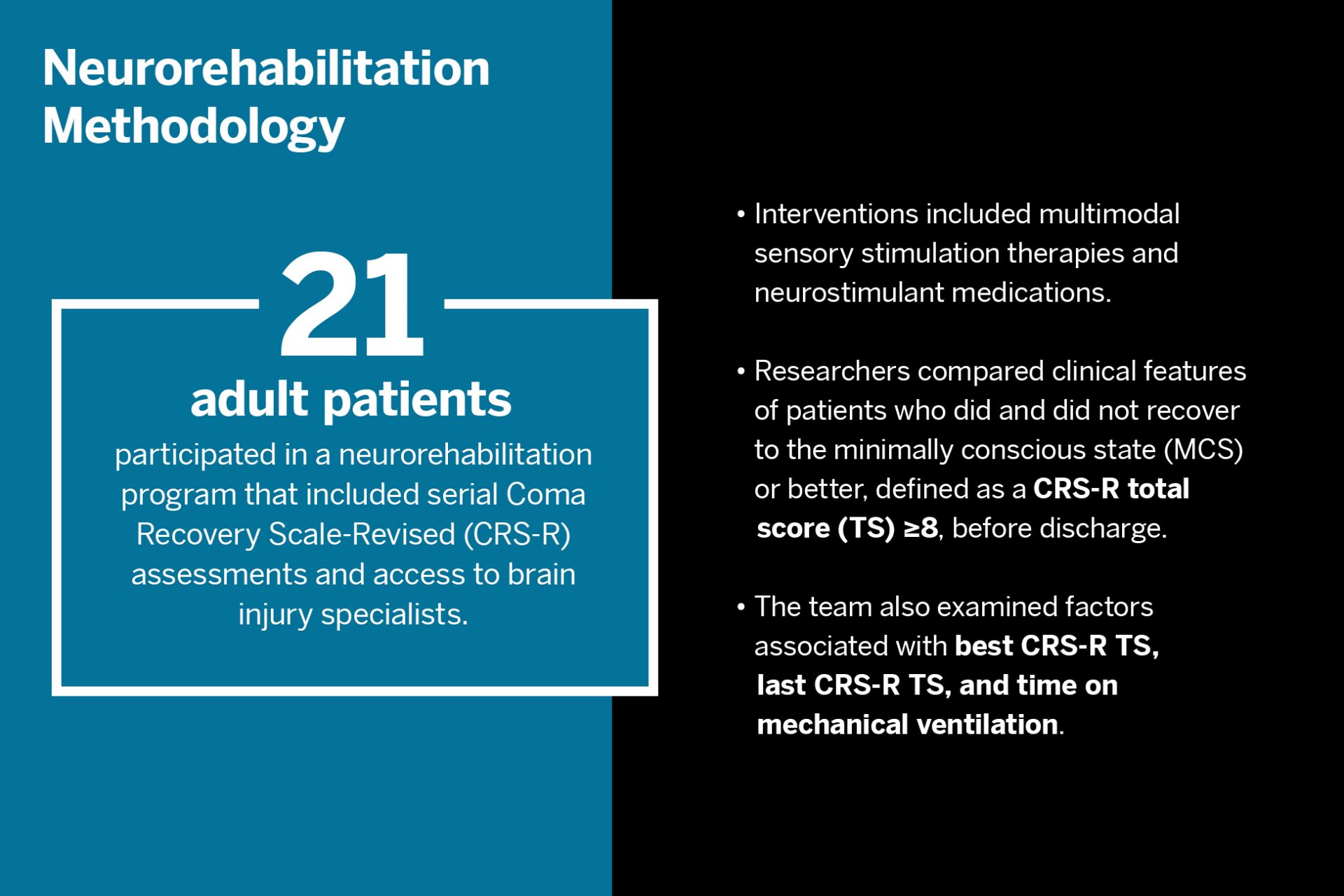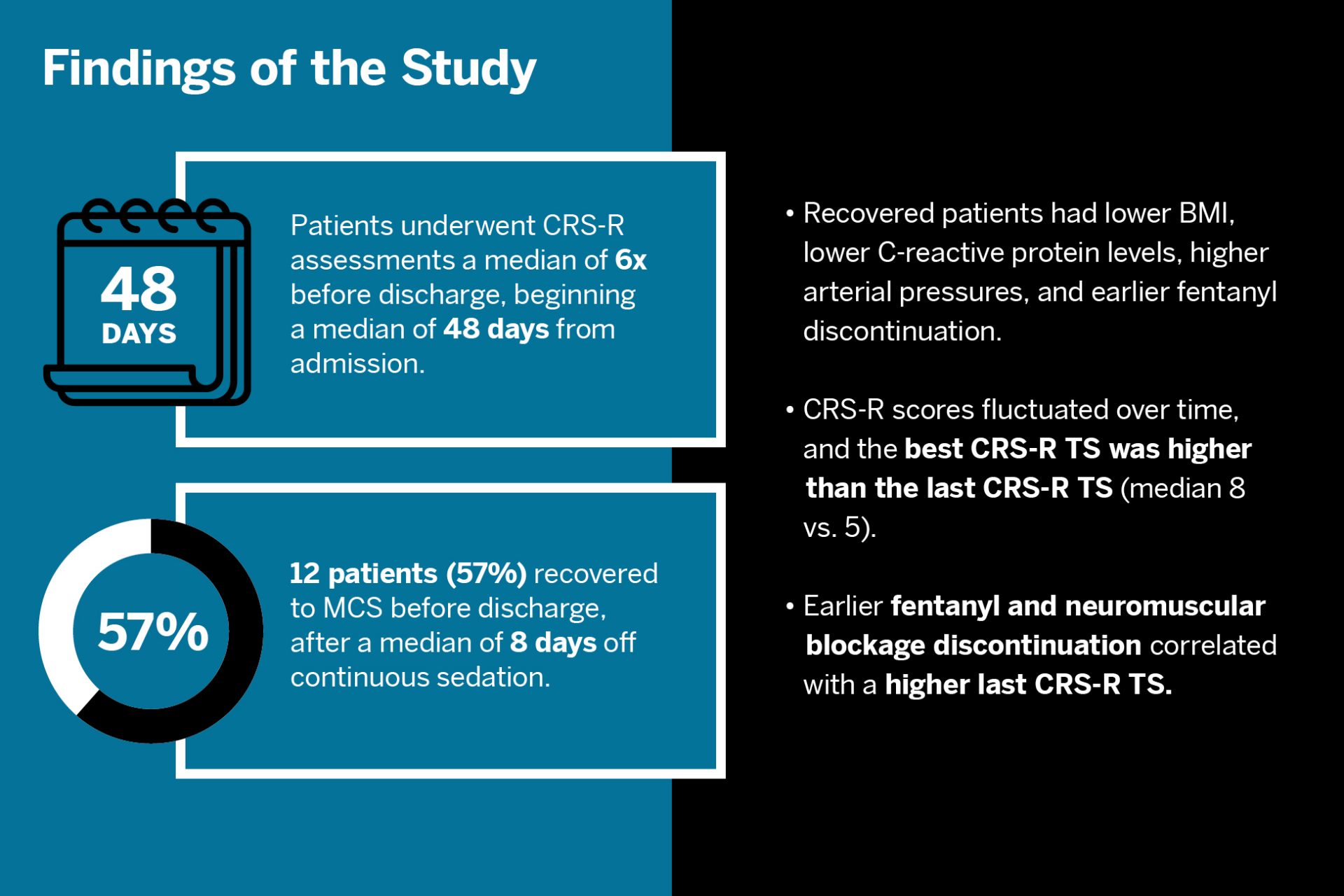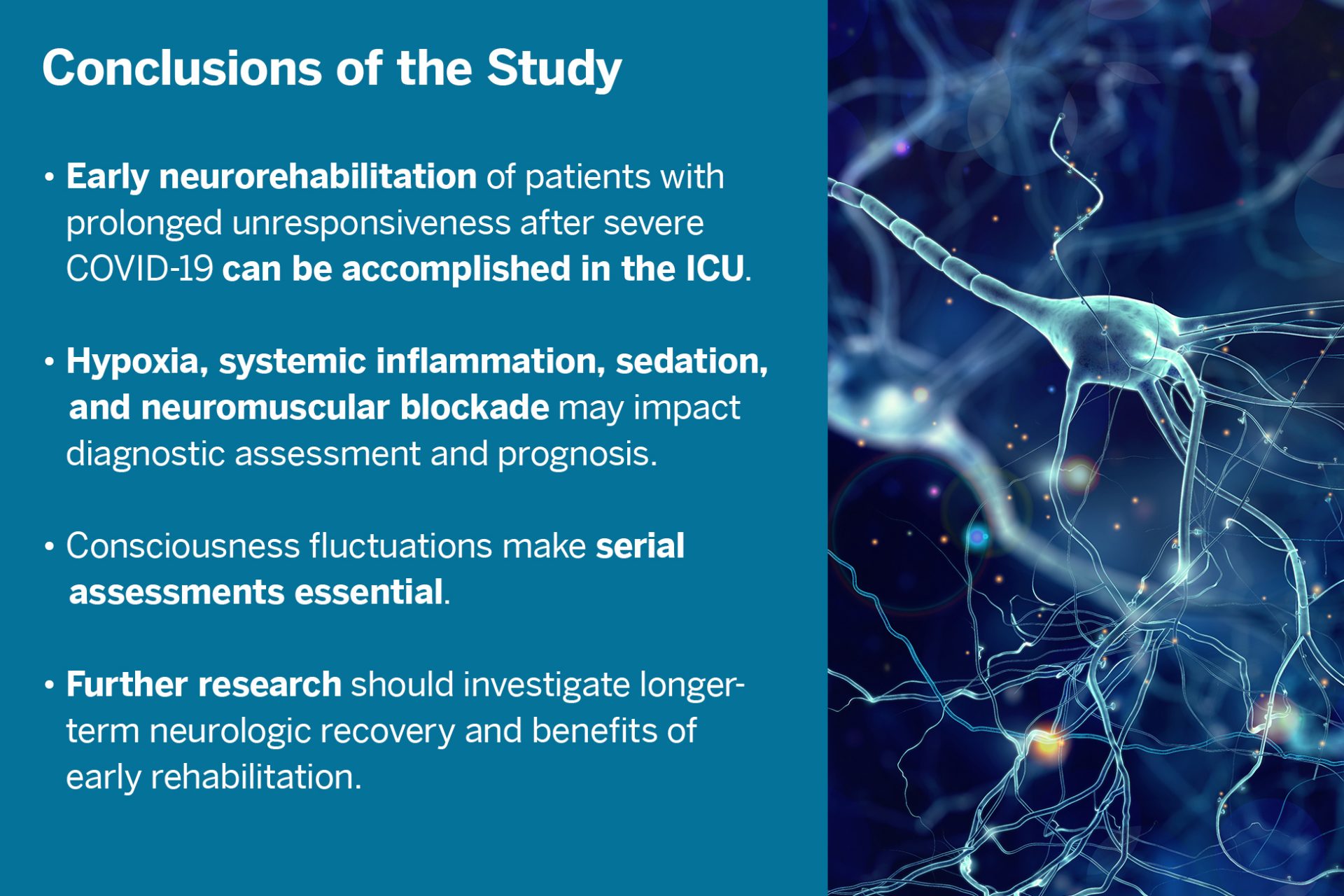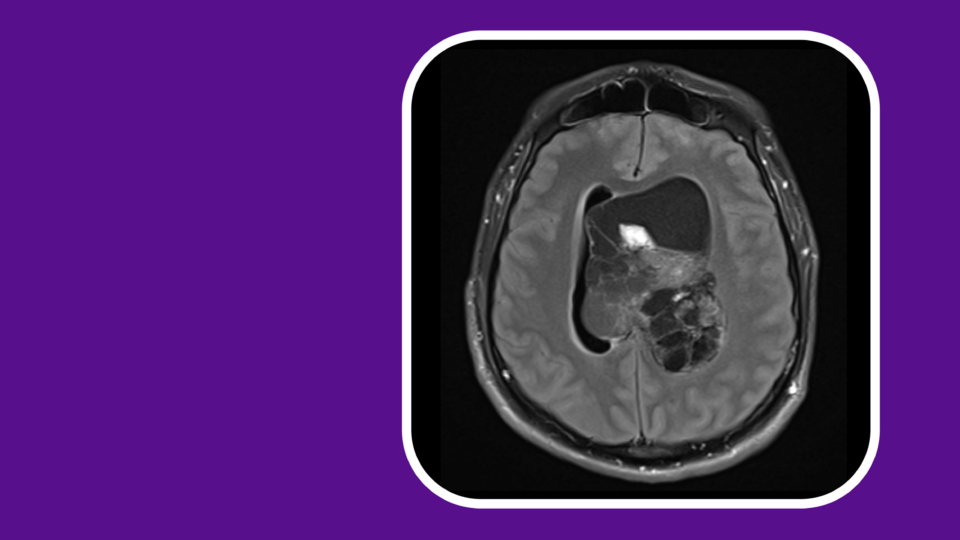Early neurorehabilitation improves outcomes in patients with disorders of consciousness (DoC) after brain injury, but its applicability in COVID-19 is unknown. In a study published in Neurocritical Care, researchers led by Lindsey J. Gurin, MD, director for behavioral neurology at NYU Langone Orthopedic Hospital, found that such an approach could benefit these patients as well.
“The results were encouraging. Over half of our cohort recovered to minimally conscious or better before hospital discharge.”
Lindsey J. Gurin, MD
During New York City’s initial pandemic surge, from March through May 2020, the team developed and implemented an early neurorehabilitation protocol for patients in the intensive care unit at NYU Langone Health with prolonged unresponsiveness after severe COVID-19.
“The results were encouraging,” says Dr. Gurin. “Over half of our cohort recovered to minimally conscious or better before hospital discharge, achieving a clinical benchmark known to have relatively favorable long-term prognostic implications in DoC.” “Fortunately, we had already developed a similar program for DoC patients of other etiologies,” notes coauthor Brian S. Im, MD, former director of the Brain Injury Rehabilitation Program. “We were able to adapt existing infrastructure to an unprecedented situation.”








